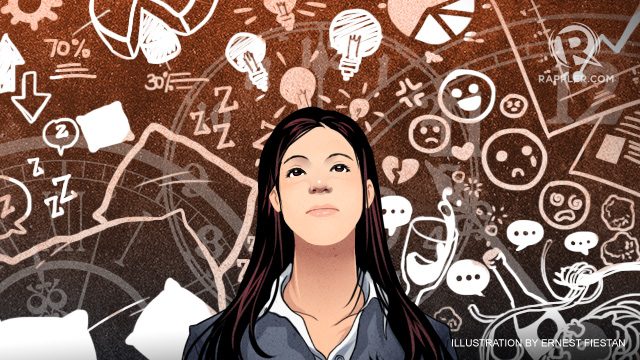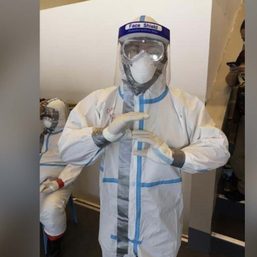SUMMARY
This is AI generated summarization, which may have errors. For context, always refer to the full article.

When the first humans learned how to plant about 10,000 years ago, it changed the way we ate and what we ate. This cascaded on to where we lived and later on, how we traded. Learning something about nature and/or ourselves forces us to rethink how we have been doing things.
Here are ten of those things that we have discovered that is changing the very fundamental ways of our lives including the way we eat, sleep, work, learn and age, across generations and cultures. Some seems for the better, others, maybe not.
-
The way we work. The 8-hour work day is a remnant of the Industrial Revolution. Henry Ford’s plant was the first to implement the idea that Robert Owen from the late 1800’s fought for. Before then, it was just assumed that everyone should work virtually all the time after some hours for sleep and eating. But now, the vast majority of jobs are no longer assembly lines. But ironically, in this digital age, we are back to working “all the time” as many kinds of “work” form part of our entire day and “formal” work (meetings, emails etc) is just the documentation part of it. It is no longer “work-life balance” but “blend”. Also, do longer work hours mean more productivity? Maybe not.
-
The way we teach our young. We know now from studies that children and teenagers are not just smaller adults but that their brains are rapidly wiring. This has an impact on the way we teach them and when we teach them, especially in formal schooling. This means that youth is the best time to learn many things but it is also the “worst” time for these kids to be “forced” to already decide what they want to concentrate on in the future in terms of careers. This makes me think of science high schools which make kids aged 12 years old to already sign commitments to take science courses in college. Science has also found out that for teenagers especially, the hormone for sleep, kicks in much later at bedtime and lingers on far longer in the morning than it does in adults or younger children. This is already changing school hours for kids with very positive effects.
-
The way we think and do. Change is not always good. Yes, the digital age has enabled us to multitask more than ever before. However, discoveries from studies reveal that despite feeling that you are accomplishing more when you multi-task, you are wrong.
-
The way we sleep. We used to think that sleep was just an “interruption” to our waking hours. But what we have discovered about sleep and how we learn and remember things, as well as how we get rid of our literal brain gunk, are even changing the way we schedule our own waking hours to be more productive and present in our own lives.
-
The way we move. We know now that exercise is not just an optional hobby for the young or the gym-crazy. Exercise is crucial in metabolism, mood and clear thinking. One thing has not changed though is how the experience of the outdoors is still fundamentally linked to our well-being.
-
The way we age. We will still die but with all the discoveries that point to how our biology could age slower or faster than our years, the ravages of aging could one day be optional.
-
The way we dine. Chefs and restaurateurs have always known that the way people taste food is not just when they finally land that morsel in their tongues. Now science has confirmed that all the senses perceive taste.
-
The way we learn. Old ways say you can’t teach an old dog new tricks. Wrong. Older brains have been found to still be capable of birthing new cells and also to be rewired by experiences.
-
The way we cooperate. Studies have shown that what makes a perfect team is not the one with everyone being the smartest in the universe but the ones who have different smarts and whose members are friends, in and out of work.
-
The way we feel. We can smell our emotions, particularly happiness and fear. Maybe that is why these feelings are contagious. Because this is lost in virtual communications, we may be altering our own experience of a full human encounter.
So what do you think, do the fundamental things still apply or have we really overhauled the way we have been? – Rappler.com
Add a comment
How does this make you feel?





![[WATCH] Rappler Live Jam: Any Name’s Okay](https://www.rappler.com/tachyon/2024/04/live-jam-1280.jpg?resize=257%2C257&crop=412px%2C0px%2C1080px%2C1080px)
![[WATCH] Rappler Live Jam: YARA](https://www.rappler.com/tachyon/2024/04/YARA-live-jam-ls.jpg?resize=257%2C257&crop=466px%2C0px%2C1080px%2C1080px)
![[WATCH] Rappler Live Jam: Jose Miguel](https://www.rappler.com/tachyon/2024/04/rappler-live-jam-LS.jpg?resize=257%2C257&crop=332px%2C0px%2C1080px%2C1080px)
![[WATCH] Rappler Live Jam: HEY JUNE!](https://www.rappler.com/tachyon/2024/03/hey-june-live-jam-ls.jpg?resize=257%2C257&crop=477px%2C0px%2C1080px%2C1080px)
![[WATCH] Rappler Live Jam: O SIDE MAFIA](https://www.rappler.com/tachyon/2024/03/live-jam-o-side-mafia-live-jam-ls-2.jpg?resize=257%2C257&crop=388px%2C0px%2C1080px%2C1080px)


There are no comments yet. Add your comment to start the conversation.